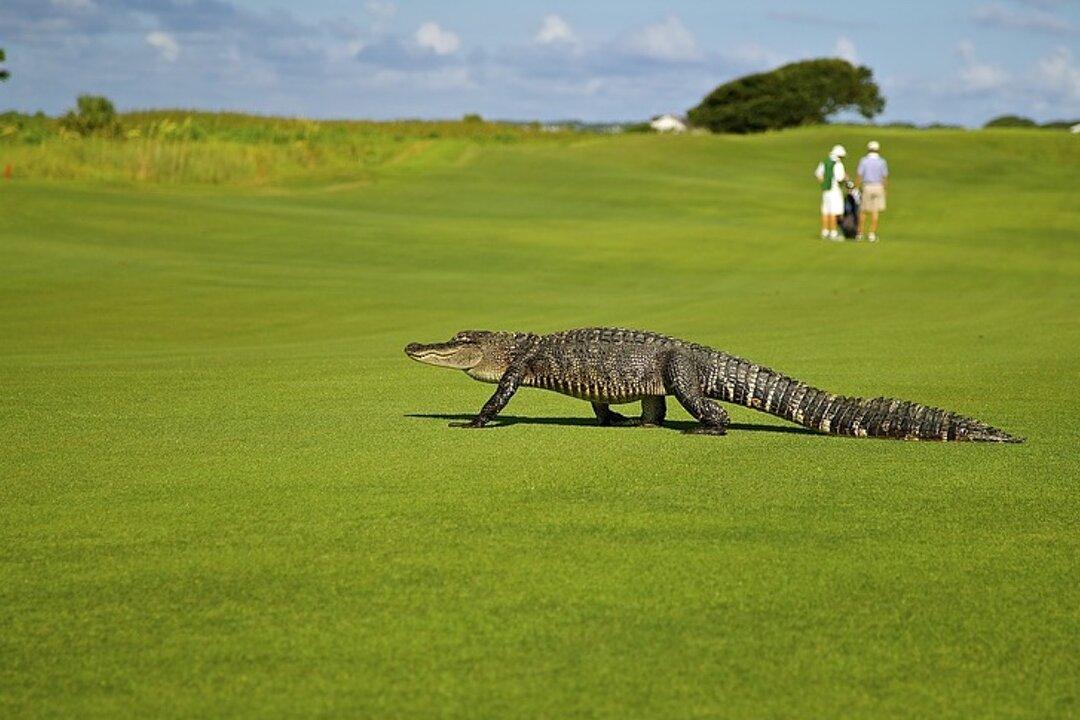A Gainesville couple had planned a special date by a Florida lake on May 30 but a hungry alligator had other ideas, eating their watermelon and cheese.
Trevor Walters was about to leave with the Marines for 10 weeks and fiancee Taylor Forte planned a romantic picnic by the side of Lake Alice, reported CBS 4 Gainesville.





